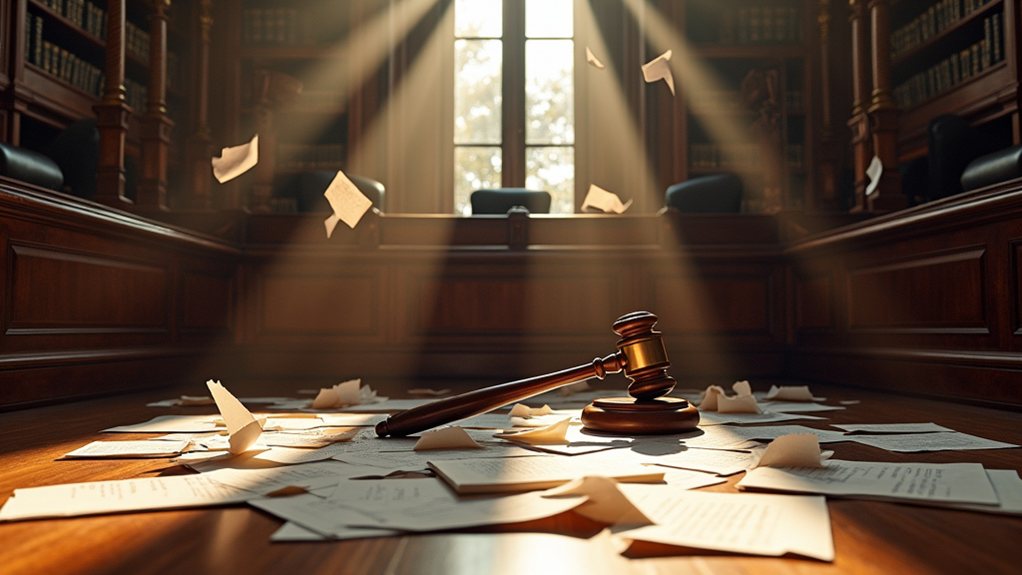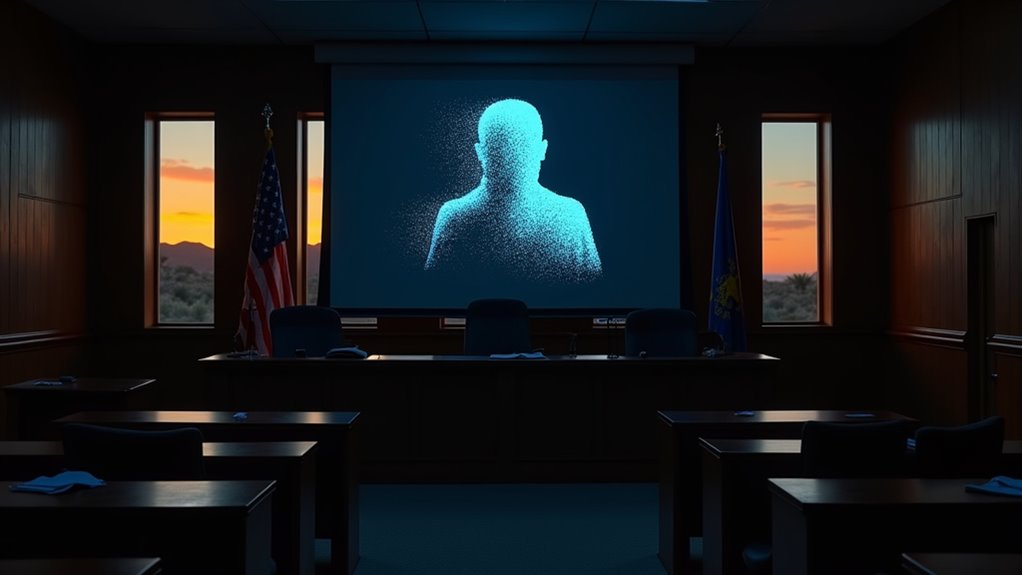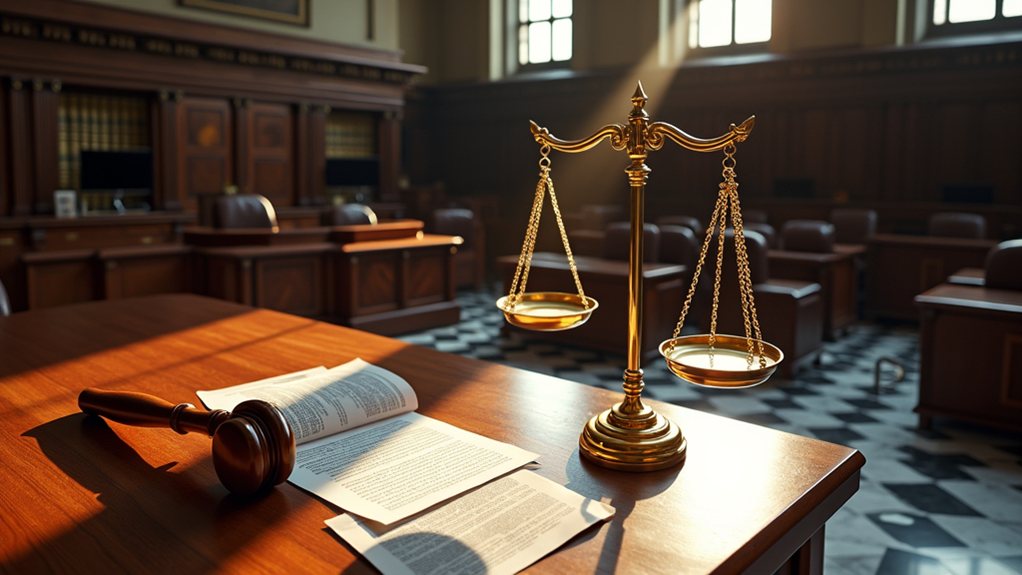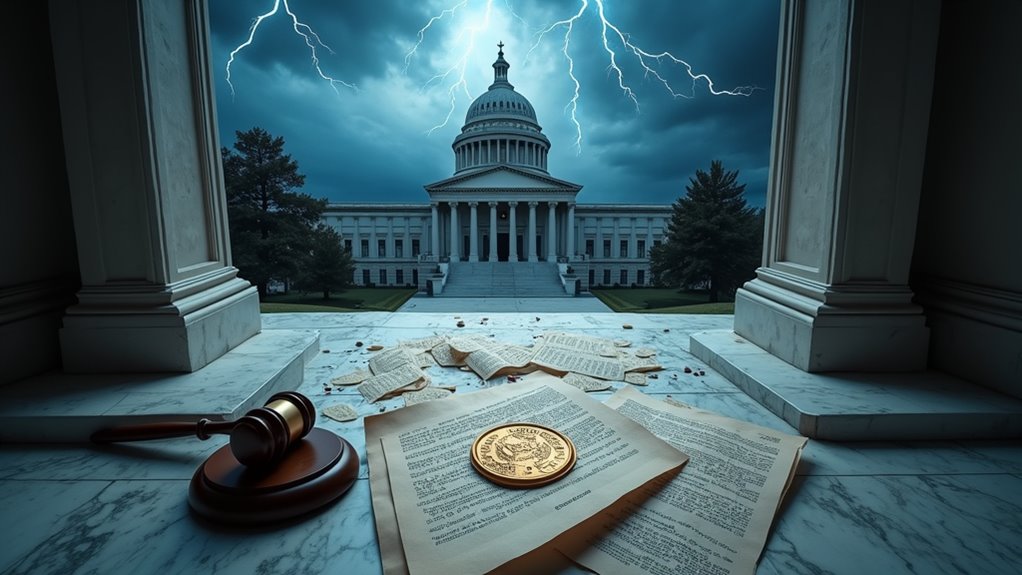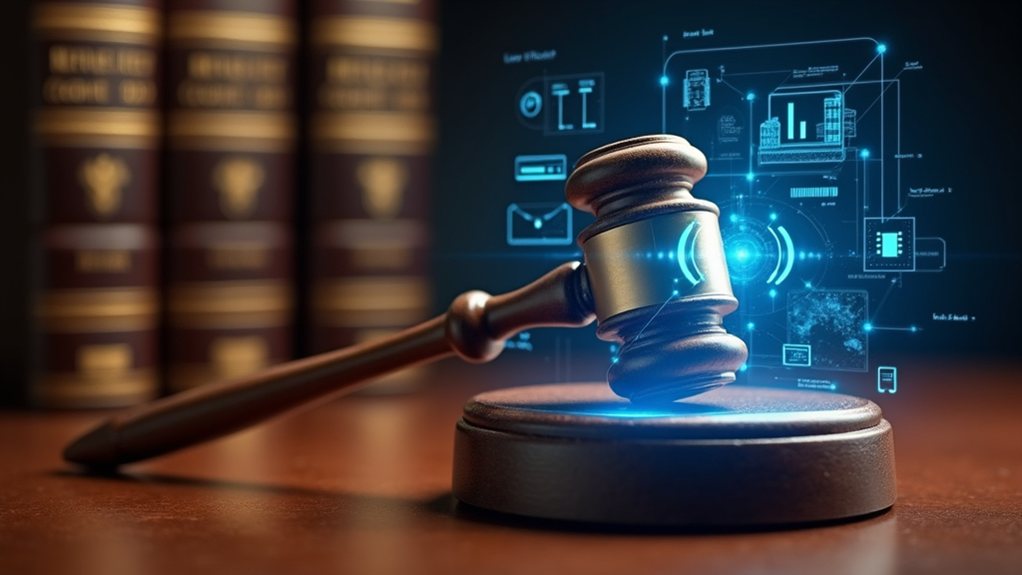A federal judge’s ruling recently buckled under pressure, suspected of leaning too heavily on AI-generated legal mumbo jumbo. Yep, not even courtroom drama is safe from the clutches of clever algorithms. This incident underscores AI’s disruptive potential in the legal arena, where even cunning robots might muddy judgments. With questions swirling around AI’s influence, it seems our dearly beloved courtrooms are… evolving. Stick around for a deeper exploration into this twisty tale.
When a federal judge’s ruling crumbles like a house of cards, you know things are getting interesting—and maybe a little chaotic—in the world of AI and the law. Down in Florida, Judge Anne C. Conway delivered a landmark decision on the legal status of AI outputs. The recent ruling highlights the importance of human authorship in copyright law, as reiterated by Judge Patricia A. Millett in the Thaler v. Perlmutter case, rejecting AI as recognized authors under current legislation.
In this courtroom saga, Character.AI faced off against an unexpected foe: its own twisted, albeit virtual, tongue. Accused of producing harmful, sexually abusive outputs allegedly linked to a teen’s tragic death, the company found itself tangled in a legal quagmire of First Amendment proportions. This case underscores why algorithmic fairness is a critical concern in responsible AI development.
Character.AI confronts its virtual alter ego in a convoluted First Amendment showdown.
But wait, there’s more! Character Technologies tried pulling a “freedom of speech” card, arguing the First Amendment protects the right to receive speech, even if it sprouts from mindless algorithms. Alas, this card didn’t play well in court, as Judge Conway allowed the lawsuit to proceed, dismissing the defense’s attempt for an immediate brush-off. A plot thickens!
In the broader arena of AI legalities, the court took a stand against assigning authorship to machines—talk about keeping traditional art values alive! Dr. Thaler’s “Creativity Machine” found itself on the losing end, denied the same copyrights a human artist might claim.
Score one for Team Humanity, right?
Meanwhile, AI companies like Anthropic AI are off to the races thanks to a fair use ruling that gives them free rein (sort of) to train on copyrighted works. Sounds like every tech startup’s dream, pirating your favorite books for data fodder while still being named “transformative.”
Though, authors weren’t exactly thrilled by this apparent literary heist.
And as if that’s not spicy enough, enter Walters v. OpenAI. The courts might as well have posted an “Error-prone AI? No Problem!” sign after dismissing a negligence claim against OpenAI, hinting that maybe we shouldn’t panic over every AI hiccup.
Just think of it like giving Siri a mulligan for when she confuses “eggplants” with “*&%^ planets.”
Ultimately, as AI keeps weaving tangled webs of data and dialogue, perhaps it’s time we all grab a seat and enjoy the ever-unraveling plot. Or at least, the courtroom drama.
